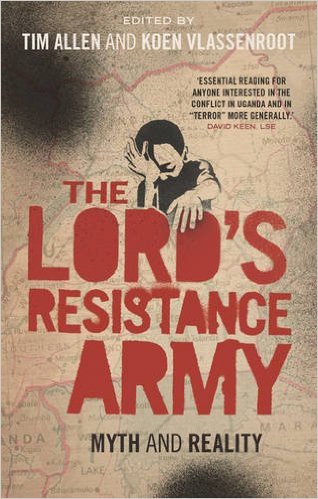Seminars with Prof. Tim Allen LSE

Professor Tim Allen is Director of the Firoz Lalji Centre for Africa and Head of the Department of International Development at the London School of Economics and Political Science. He has carried out long-term field research in several African counties, mostly in East Africa. His publications include the bestselling textbook, Poverty and Development (Oxford University Press 2000), as well as books and articles on ethnic conflict in Europe, media coverage of wars, links between culture and development issues, mass forced displacement, and global health. His latest books have been Trial Justice: The International Criminal Court and the Lord's Resistance Army (2006), and The Lord’s Resistance Army: Myth and Reality (2010). In recent years, his research has focused on justice and accountability in African war zones, and social aspects of Neglected Tropical Disease control. He has published extensively on the latter in collaboration with Dr Melissa Parker of the London School of Hygiene and Tropical medicine, focusing in particular on mass drug administration in endemic populations of East Africa.
Tuesday 5th July: 'Deworming Delusions: Mass Treatment for African Parasites in a Biosocial Perspective'
In this seminar, Tim Allen challenged assertions about the effects of school-based deworming. In most places where data exist, infection levels remain disappointingly high. He spoke of the social problems arising from mass drug administration, which have generally been ignored. Prof Allen reflected on the challenges and opportunities associated with doing critically-engaged ethnographic fieldwork on such an important and widely promoted intervention. He posed several controversial questions about the nature of evidence, about how evidence relates to policy choices, about the ways in which large grants shape the evidence that is collected and the way it is presented, and about why it is possible to treat African children in schools without their parents’ permission (something that is unlikely to be considered ethical in other parts of the world).
Wednesday 6th July: 'Humanitarian Impunity, Criminal Justice and Invisible Children: Social Consequences of the War with the Lord’s Resistance Army'
Cognitive dissonance and humanitarian impunity in the war zone of Acholiland in central northern Uganda were the focus of this lecture. The region has been affected by conflict for decades, with more than 30,000 young people being abducted or joining the Lord’s Resistance Army (LRA). Tim described the story of many traumatised children who passed through reception centres on their way 'home' to relatives who were aware they had spent time with the LRA. These reception centres were managed with the support of international humanitarian agencies, but no-one knows what subsequently happened to most of those passing through them. They have been much more invisible than the so called ‘invisible children’ that have been the focus of media campaigns about the situation in the region.
Prof. Allen questioned where humanitarians fit in to the upheavals that have occurred, and the attempts to impose accountability for terrible crimes? The lecture drew on long-term anthropological fieldwork from periods before, during and after the war. Aspects of social integration and exclusion in the post war setting of northern Uganda were highlighted. Tim raised the issue of cen, a kind of malevolent emanation from those that have experienced or perpetrated violence which can make social healing a fraught process. Another issue is the relative insignificance of local reconciliation rituals that have been a prime focus of those advocating traditional justice. He highlighted the big discrepancies between the lived experiences of those who have been caught up in the war and the normative assumptions of those purportedly helping them. Meanwhile, most of the humanitarian agencies that were active during the war have withdrawn, and media interest has shifted elsewhere. The International Criminal Court is prosecuting one of the Lord’s Resistance Army commanders, but the process is largely being ignored, and the accountability of others (including aid agencies) for what was described by a senior UN official in 2003 as amongst the worst of all humanitarian crises, is simply forgotten.
